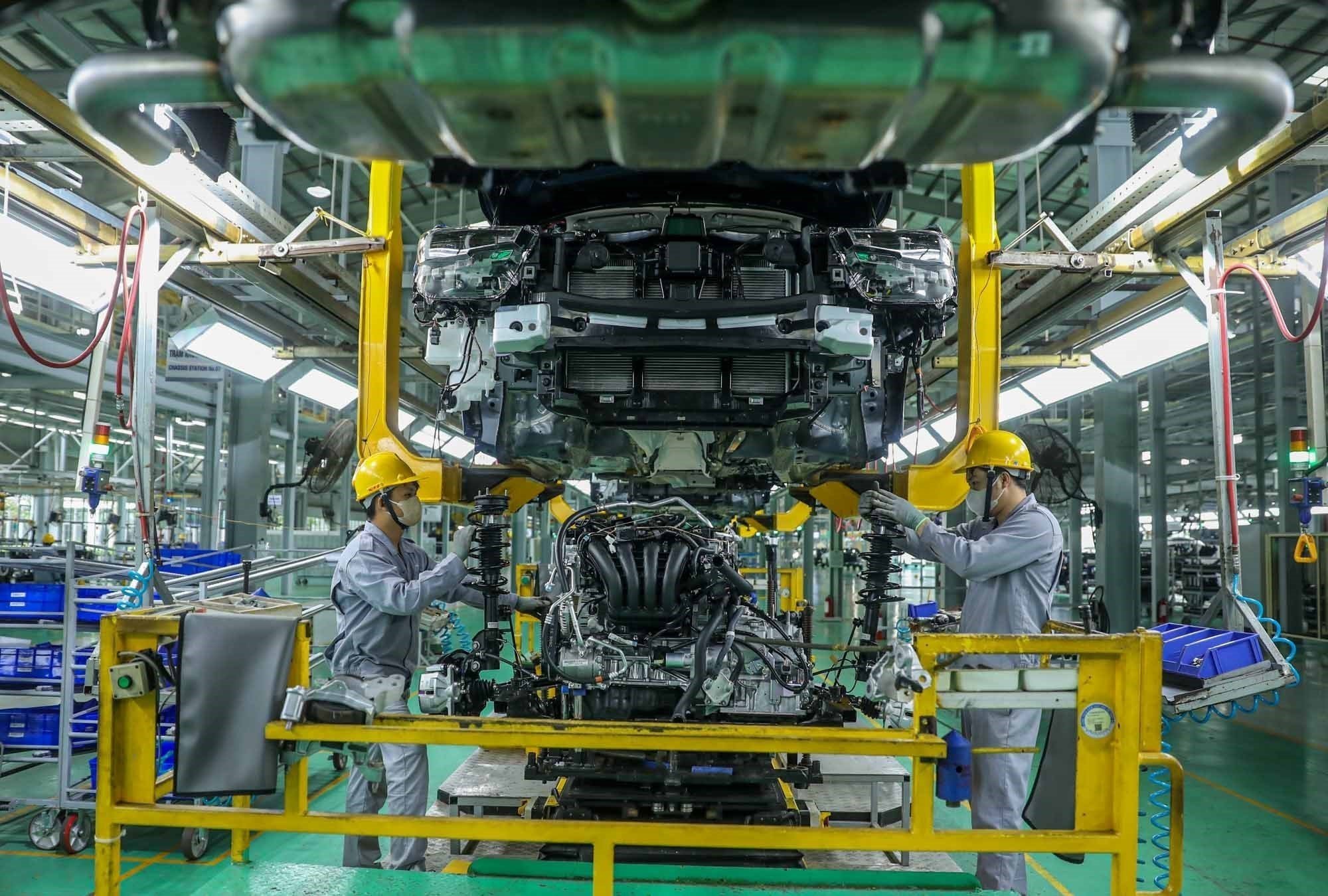
Research, promulgate and implement policies from the perspective of policies for the current Vietnamese working class
Policy demonstrates a proactive and self-conscious role in development and adjustments towards a certain field and target. Research on the policy of “building a modern and strong working class” raises a number of issues that need further research from the perspective of policy issuance and implementation as follows:
Context of policy issuance : Since the industrialization and modernization were promoted (in 1996) until now, the major context has been the renovation process, the specific context has been the process of promoting industrialization and modernization in a socialist-oriented market economy . More realistically, the labor market, labor relations, labor conditions... All the factors that create that context have been distinguished from the period before 1996 and before 1986. In each specific period, according to the change in development trends and awareness, the context factor can add many new details; for example, "associated with globalization, towards a knowledge-based economy and environmental protection".
Currently, the “Fourth Industrial Revolution context” is an important factor. Its characteristics are production and services based on new achievements in science and technology, very high labor productivity, using highly skilled labor, less labor intensive, taking place very quickly and drastically, forcing all economies to change in the direction of “in-depth growth model innovation”. Policies for the working class must take into account and meet that requirement. Of course, along with the response to transformation, there are also policy adjustments that are no longer suitable for the new context.
The subjects participating in the policy-making process are state management agencies with different levels of power, such as the National Assembly, the Government, ministries, branches, people's committees at all levels and a number of other organizations (Vietnam General Confederation of Labor, Vietnam Federation of Commerce and Industry...). The participation of many subjects in the policy-making process has both positive effects and raises a number of management issues, such as defining the policy's impact objects, determining the policy's distinctiveness...
The policy advisory voice of the Trade Union - the organization representing the interests of workers - is very important, but how this is translated into specific policies is an issue that needs further research.
The beneficiaries of the policy have not been defined in a unified manner in the management documents when the beneficiaries are "workers", "laborers", "workers in industrial zones", and there is even a broad default of "workers in all economic sectors"... There are few policies that specify specific subjects such as "regimes for pregnant female workers and those raising children under 12 months old"... The distinction between beneficiaries of the policy, thereby contributing to ensuring increasingly better social justice, is also an issue that needs attention.
Field of adjustment : In fact, there have been many policies that specifically indicate the areas of regulation, for example: "on labor and employment"; "housing and social welfare for industrial zones"; or "preferential allowance regimes according to occupations for civil servants and public employees in the health sector"... However, there are only a few policies (on labor, wages in private enterprises, organization and conditions for establishing trade unions in the private sector) that clearly indicate and define the areas of regulation in the private economic sector.
Subjects participating in the policy implementation process , although are indicated in policy documents on responsibilities and obligations to comply with policies of enterprises, but it seems that the subjects and measures to handle violations are still unclear.
From the perspective of policy implementation, the private economic sector is currently providing jobs for about 12.7 million workers and is expected to increase from the current 940,000 enterprises to 2 million enterprises, with a proposal of 4 million enterprises in the near future (1) . In general, this sector is in need of policy support. Both policies to untie and promote development and policies to support and protect the rights and interests of workers when life is difficult. Developing the private economic sector cannot help but mention policy issues to develop the working class in this sector.
The construction and development of the working class is facing a number of challenges between the requirements of developing a market economy and ensuring socialist orientation. The market economy, a multi-sector economy, in which the capitalist private economy is widely used, has led to a phenomenon arising in practice that a part of the workers is strongly affected by the labor market, the law of exploiting surplus value, and their working life is difficult. With the policy of developing a private economy, the problem of workers being masters and employees is a daily reality. So how can we both develop a market economy and ensure socialist orientation in the context of the labor market and labor relations being significantly affected by the continuous fluctuations of the regional and international situation; how can we both build the material foundation for socialism in the context of the Fourth Industrial Revolution and gradually build a democratic, fair and civilized society?
In summary, the policy towards workers in private enterprises, the KTTN sector, is clearly an area that needs to be improved in a differentiated direction, because this group of workers has many unique characteristics.
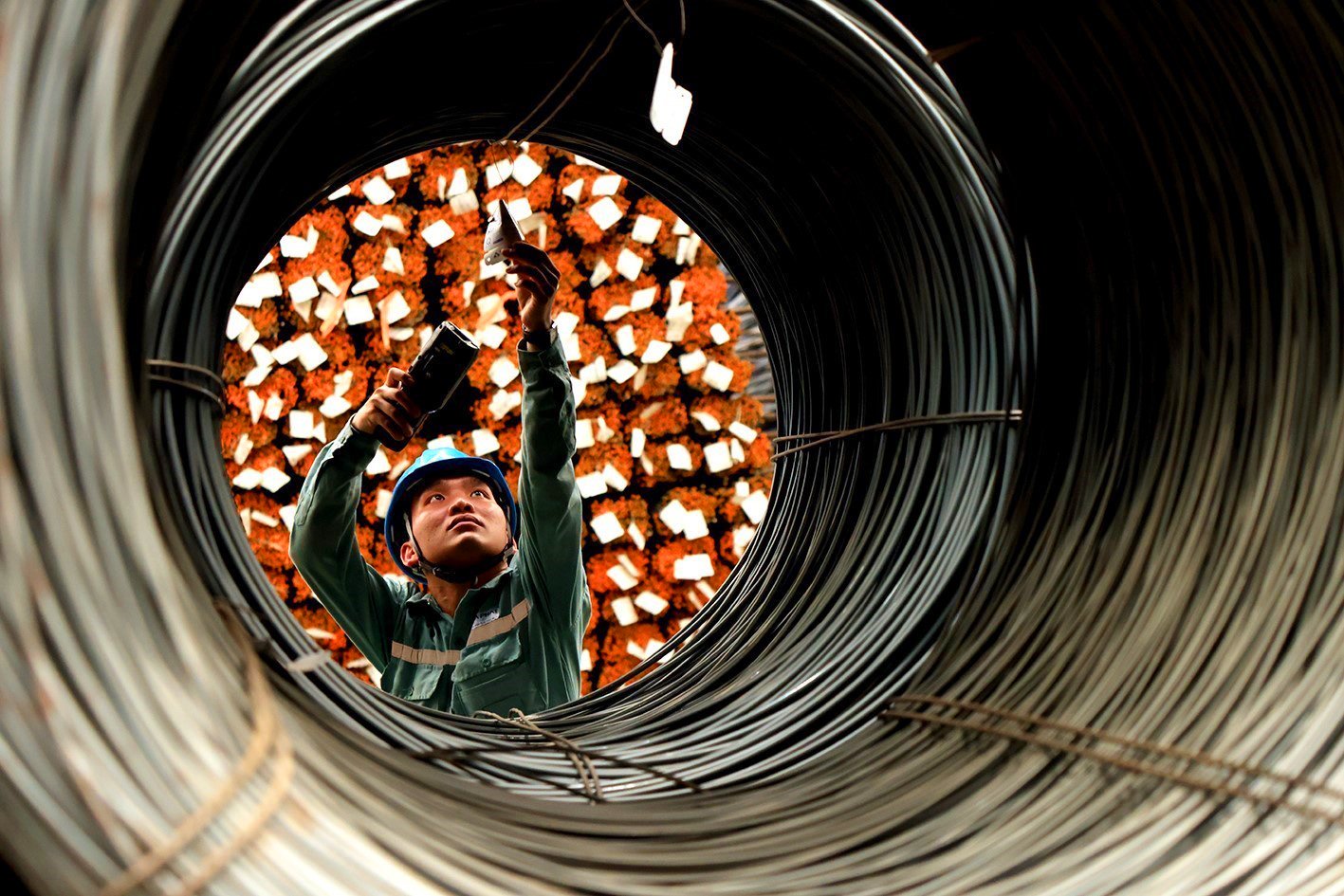
Perfecting policies for the private economy and workers in the private economic sector is a practical need to contribute to building a modern and strong working class.
Developing the private sector into an “important endogenous resource”, “one of the important pillars” of our country’s economy in the period of national development… is gradually becoming a breakthrough policy in our country. Building a modern, strong working class must also be closely linked to and focused on perfecting policies in this field.
In the world, China's experience shows that since the 18th Congress (2012), the Communist Party of China has focused on developing the private economy in the direction of: "National retreat, people advance" (reducing the number of state-owned enterprises, increasing private enterprises). The viewpoint is: "Both state and private economies are important components of the socialist market economy; Persisting in the two "unwaverings": "unwavering in consolidating and developing the state economic system" and "unwavering in encouraging, supporting and guiding the development of the private economy". As a result, by the end of 2017, the number of private enterprises in China exceeded 27 million, the number of individual business households exceeded 65 million, with registered capital exceeding 165 trillion yuan, the private economic sector contributed more than 50% of taxes, more than 60% of GDP, more than 70% of technological innovation, more than 80% of urban employment and more than 90% of the number of enterprises. Among the world's top 500 enterprises, the number of Chinese private enterprises increased from 1 in 2010 to 28 in 2018.
There are several policy issues that need attention:
The first , What steps, solutions and policies need to be taken to develop the private economy in our country?
The important role of the private economic sector has been affirmed by the practice of innovation. The private economic sector makes a very important contribution to creating jobs, promoting economic restructuring, especially in rural areas and difficult areas. In the period 2017 - 2024, the private economic sector employs an average of more than 43.5 million workers, accounting for more than 82% of the total number of employed workers in the economy. The proportion of private economic investment capital in total social investment capital increased rapidly, from 44% in 2010 to 56% in 2024; contributing more than 30% of total state budget revenue, about 30% of total import and export turnover (2) . It is worth noting that the private economic sector has made an important contribution to improving labor productivity, promoting innovation and increasing national competitiveness. Developing the private economic sector "to become a lever for a prosperous Vietnam" is a new way of thinking that needs to be encouraged.
However, the current legal system still has some shortcomings and overlaps; the business environment has many obstacles, administrative procedures are still time-consuming, costly and potentially complicated. “Private sector enterprises still face many barriers in accessing resources, especially credit capital, land, resources and high-quality human resources, especially in the technology, engineering and financial sectors” (3) .
Human resource development in the private economic sector is also facing a number of challenges. The question is: why are private enterprises still organized on a small and micro scale? What is the development potential of private enterprises, when the competitiveness, management capacity, especially labor productivity of many private enterprises are still lower than that of FDI enterprises and state-owned enterprises? How to effectively implement corporate social responsibility towards private enterprises? The current problem is to harmonize the contribution of the labor force - the largest force in the country currently working in the private economic sector - with the enjoyment of social welfare and social security, while the majority of the labor force has not been properly trained, thereby finding solutions and methods to develop the Vietnamese working class.
To develop the private economy, there needs to be a comprehensive and innovative policy system that creates a strong driving force to liberate labor productivity.
Second, what steps, solutions and policies need to be taken to develop the workforce in private enterprises in our country?
From the perspective of a developmental state, the two most important economic functions are to create market economic institutions and to promote the development of enterprises in terms of both management and labor force. Both of these functions are directly related to the management and operation role of the State.
Currently, the private economic sector attracts about 40 million workers, of which 12.7 million are workers. In proportion to the entire working class, the private economic sector employs 3/4 of the Vietnamese workers and contributes about 50% of GDP.
Recent studies (4) show that workers' concerns about life focus mainly on stable jobs, sufficient income, savings, support in social infrastructure, social security...
In practice, when researching and implementing policies for this group of workers, there are currently several issues that need attention :
The employment and working conditions of workers in the private economic sector are still inadequate compared to their own needs and the requirements of the Fourth Industrial Revolution. In some private enterprises, many policy issues need to be studied, such as workers' working conditions, social security, union activities, and specific policies on labor relations... (5) .
The gap in educational level and skills of workers in our country's private sector with the requirement of "building a modern and strong working class" in the context of the Fourth Industrial Revolution is an issue that needs attention.
Accordingly, training and retraining of industrial workers in our country in general and workers in the private economic sector in particular are in need of a macro strategy with the policy model: "The State supports innovation in production technology and innovation in education and training to create human resources suitable for the Fourth Industrial Revolution" and "the labor market uses and reimburses labor training costs". In which, the State anticipates human resource needs and determines overall strategies; the market determines the demand for quantity and quality of human resources; workers voluntarily and proactively choose careers according to their interests; training facilities sign joint contracts and coordinate training with businesses; human resource users ensure "corporate social responsibility" and comply with legal requirements on labor use... All of these relationships are regulated by both the needs of the labor market and the State mechanism of inspection, regulation, and support for the labor use process through laws on labor activities and the social security system./.
----------------------
(1) Telecommunications: “Expert: Private enterprises need to be assigned large projects”, VN Express electronic newspaper, March 20, 2025, https://vnexpress.net/chuyen-gia-doanh-nghiep-tu-nhan-can-duoc-giaonhung-du-an-lon-4863709.html
(2) See: Summary: National conference to implement Resolution 66-NQ/TW and Resolution 68-NQ/TW of the Politburo, Government e-newspaper, May 21, 2025. https://xaydungchinhsach.chinhphu.vn/hoi-nghi-toan-quoc-quan-triet-trien-khai-nghi-quyet-66-va-nghi-quyet-68-cua-bo-chinh-tri-119250517213032536.htm
(3) Prof. Dr. To Lam: "Private economic development - Leverage for a prosperous Vietnam", Communist Magazine, No. 1,059 (April 2025), p. 4
(4) Institute for Workers and Trade Union Studies, Vietnam General Confederation of Labor: Annual survey report, 2024
(5) See: Le Dinh Quang: "Trade unions participate in building legal policies to protect the rights of workers in the socialist-oriented market economy and international integration in Vietnam in the coming time" (Proceedings of the Scientific Workshop on Activities of Vietnam Trade Unions in the socialist-oriented market economy and international integration , August 2024); Conclusion of the Scientific Workshop on Activities of Vietnam Trade Unions in the socialist-oriented market economy and international integration, August 2024; Ministry of Labor - Invalids and Social Affairs: Labor Relations Report 2022, p. 45
Source: https://tapchicongsan.org.vn/web/guest/chinh-tri-xay-dung-dang/-/2018/1135502/vai-tro-luc-luong-cong-nhan-trong-khu-vuc-kinh-te-tu-nhan-gop-phan-%E2%80%9Cxay-dung-giai-cap-cong-nhan-viet-nam-hien-dai%2C-lon-manh%E2%80%9D.aspx




![[Photo] Da Nang: Hundreds of people join hands to clean up a vital tourist route after storm No. 13](https://vphoto.vietnam.vn/thumb/1200x675/vietnam/resource/IMAGE/2025/11/07/1762491638903_image-3-1353-jpg.webp)







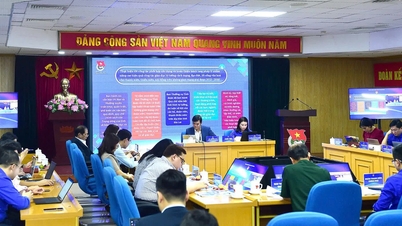


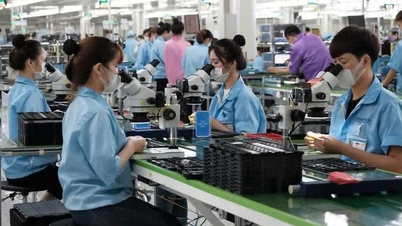




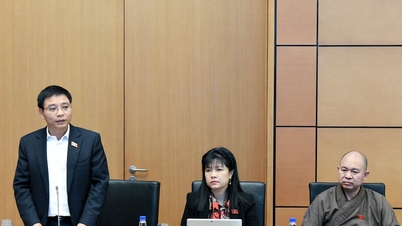


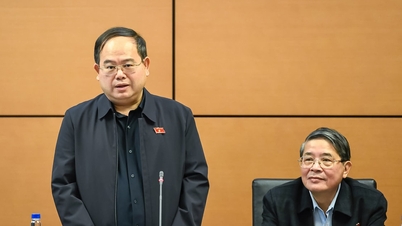
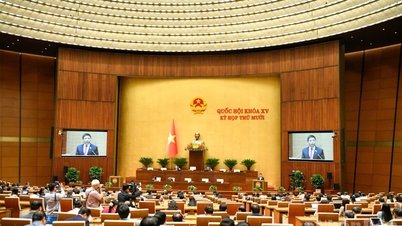






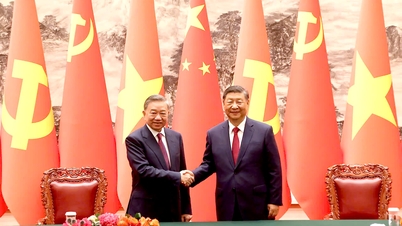

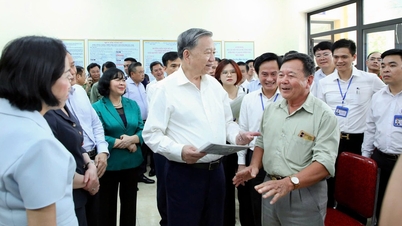
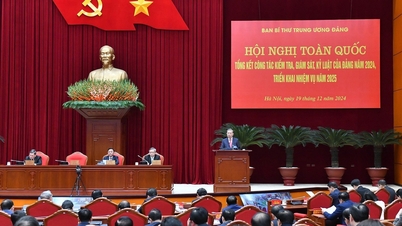
















































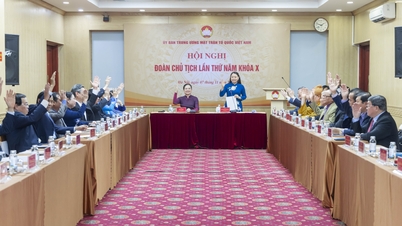







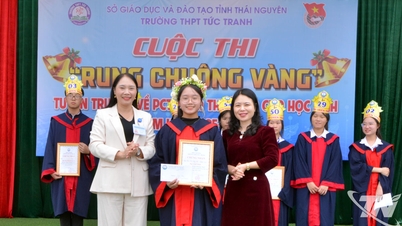

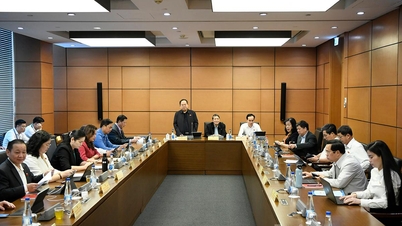



















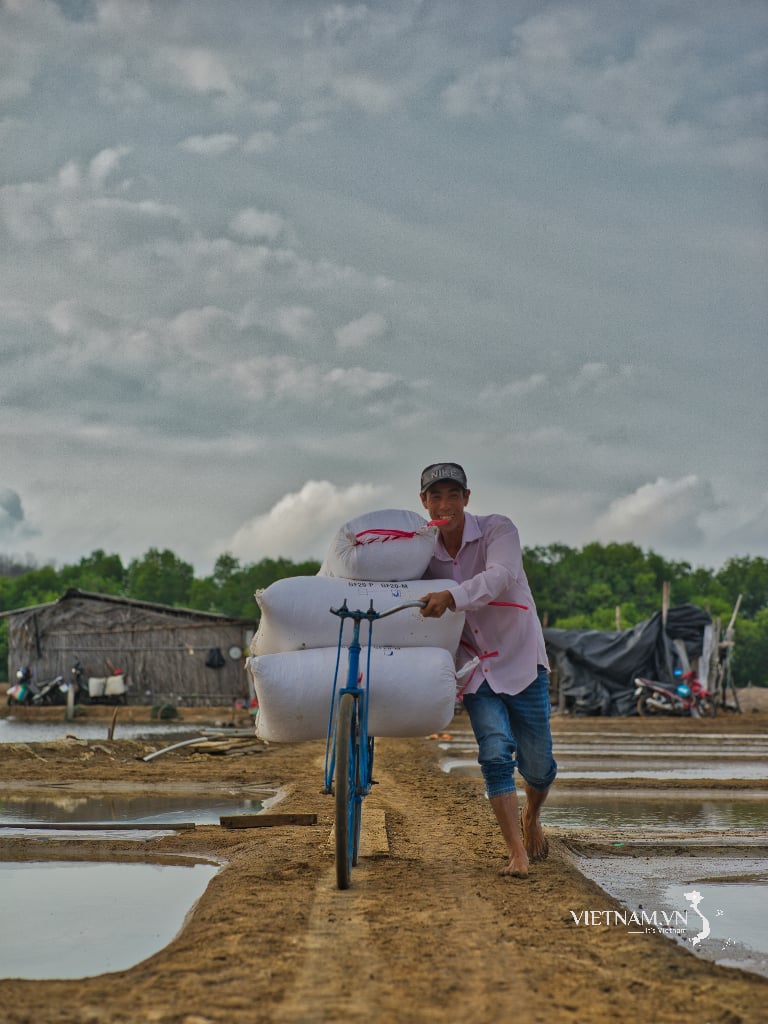
Comment (0)